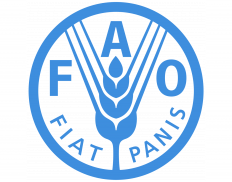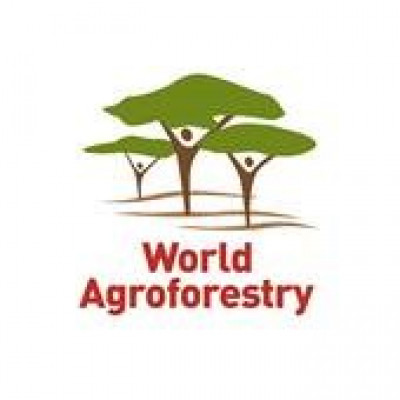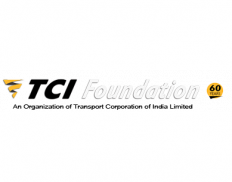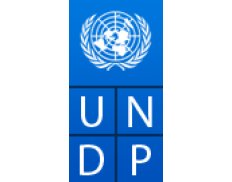Details
Description
Background
UN Women, grounded in the vision of equality enshrined in the Charter of the United Nations, works for the elimination of discrimination against women and girls; the empowerment of women; and the achievement of equality for women as partners and beneficiaries of development, human rights, humanitarian action and peace and security. Placing women’s rights at the centre of all its efforts, the UN Women will lead and coordinate United Nations system efforts to ensure that commitments on gender equality and gender mainstreaming translate into action throughout the world. It will provide strong and coherent leadership in support of Member States’ priorities and efforts, building effective partnerships with civil society and other relevant actors.
Asia and the Pacific continue to be one of the regions most prone to the impacts of disasters, with 8 of 10 deadliest disasters worldwide in 2018. As the impact of climate and conflict continues in the region, there is an increasing recognition among UN Women country offices that the development and humanitarian challenges arising from the crisis must be met with accelerated action and enhanced capacity with the support of the regional office.
UN Women’s work in humanitarian action is guided by global norms and standards. Building on findings of the inter-agency Gender in Humanitarian Action (GiHA) review based on the Accountability Framework of the IASC’s Equality and the Empowerment of Women and Girls in Humanitarian Action Policy. The UN Economic and Social Council adopted resolutions E/RES/2012/3,1 E/RES/2013/62 and E/RES/2014/23 in 2012, 2013 and 2014, which recognize that humanitarian action can be strengthened by mainstreaming a gender perspective into all aspects of the humanitarian response. Similarly, the first-ever World Humanitarian Summit (WHS) in 2016 emphasized the centrality of gender equality and women’s empowerment (GEWE) to humanitarian action.
Women, girls, men and boys, in all their diversity, are disproportionately impacted by humanitarian emergencies, climate-related disasters, and fragile conditions. Gender inequality heightens exposure to risks, increases vulnerability, and restrains the capacity to anticipate, adapt and recover from crises and contribute meaningfully to resilience building. Taking the realities of gender and identity of all persons affected by a crisis into account in humanitarian action is essential to providing an effective response. An emergency context can provide new entry points to promote gender and social equality. Promoting GEWE in humanitarian action facilitates the right to participation, affords protection, increases access to assistance and enables transformative change for persons of all genders and ages.
Based on UN legislative mandates and the UN Women Strategic Plan, the Regional Office for Asia and the Pacific (ROAP) is tasked with providing strategic programme development, policy/ technical advisory services and quality assurance support to Multi-Country Offices (MCOs), Country Offices (COs) and Programme Presence Offices (PPOs). It undertakes or coordinates regional research and data analysis; advises on norms, policies and strategies for achieving the internationally and regionally agreed goals related to gender equality and women’s empowerment issues. It acts as a knowledge hub at the regional level, collecting evidence on progress and emerging issues and sharing knowledge on innovative approaches and lessons learned in implementation.
In order to support implementation of these key actions, the UN Women Centre of Excellence for Gender Equality in Seoul, the Republic of Korea (“the Centre”) is a hub for training, research, and partnership at a national and regional level. The establishment of the Centre in the Republic of Korea was initiated during the Beijing+25 conference in late 2019. Subsequently, the UN Women Regional Office for Asia and the Pacific in collaboration with UN Women Headquarters and MOGEF has led the project to set up the Centre. The goal of the Centre is to strengthen and implement a comprehensive and dynamic set of global norms, policies and standards on gender equality and the empowerment of women and girls. The Centre will work across three main priorities: education and training, data and research, and advocacy and communications.
Within the education and training priority, the Centre will develop training on humanitarian action and disaster risk reduction to provide tools, methodologies, and guides for humanitarian action and disaster risk reduction including prevention, preparation, response and recovery, and training for gender-sensitive humanitarian leadership to integrate a gender perspective into activities.
In addition, the consultant should be able to provide technical expertise on Gender and Data research and climate change and environment in relation to Disaster Risk Reduction and the Sixty-Sixth Session of the Commission on the Status of Women.
The Training Module Development Consultant will directly work with the Centre of Excellence Gender Training Specialist and the Regional Humanitarian and Disaster Risk Reduction team, to develop a series of training modules that will be implemented by the Centre and UN Women offices within the Asia Pacific Region. The Consultant is responsible for developing a series of training modules and refining them based on feedback from UN Women and partners. Following the module development, the Consultant will be responsible for testing 1-2 modules of 4 to 6 hours training throughout 2 to 3 days in-person or remote training events (depending on budget and travel restrictions).
Duties and Responsibilities
Under the supervision of the Regional Office of Asian Pacific for Humanitarian Action and Disaster Risk Reduction and Gender Training Specialist at Centre of Excellence lead, the objective of this assignment is to develop training materials on Gender in DRR, Introduction to Rapid Gender Analysis and Gender Age Marker for agency country programme staff, partner organisations, Government, non-governmental organisations, academia, international institutions and other agencies working in areas associated with Humanitarian Action and DRR. The Consultant will perform the following tasks:
Develop timeline and workplan for completion of all deliverables.
Undertake desk research and analyse of training modules, training modules from existing training material available for training country programme staff, partner organisations, Government, non-governmental organisations, academia, international institutions and other agencies working in areas associated with Humanitarian Action and DRR on Gender in DRR, Rapid Gender Analysis and Gender Age Marker.
Develop interactive and detailed training modules and session plans with all the necessary materials and resources (Agenda, facilitation notes, PTT, Exercises, etc.) that would cover 4 to 6 hours of session throughout 2 to 3 days for each module. There are a total of 8 modules with 3 existing training material (Gender in DRR, Rapid Gender Analysis and Gender Age Marker) and 5 new series of training (Gender in Preparedness and Response, CSO Capacity Development, Intersectionality in Humanitarian Action and Disaster Risk Reduction, Shifting Focus from Development to Humanitarian Action and Youth Participation in Humanitarian Action and Disaster Risk Reduction). The trainings should deliver current standardized humanitarian & DRR knowledge and skills accompanied by exercise or activities to stimulate the knowledge and understanding of the attendees on the 8 topics mentioned above. It should be based on facts, examples and best practices across humanitarian and DRR field. Each module will introduce “What is Gender” as one set of “standard element”.
The draft modules will be reviewed by the Regional Advisor, Humanitarian Action and Disaster Risk Reduction and the Programme Coordinator, Humanitarian Action and Disaster Risk Reduction; therefore, the consultant will incorporate and revise the modules to the required acceptable standards of UN Women.
Develop a evaluation of the modules/workshops by the participants in order to improve the modules accordingly based on the feedback.
Facilitate training sessions of 1-2 different modules (either online or in-person depending on funding availability and travel restrictions).[1]
Tasks and Deliverable
No.
Tasks and Deliverables
Target dates
(Tentative)
Number of days
1
Develop timeline and workplan for completion of all deliverables.
16 September 2022
5
2
Undertake desk research and analysis of training modules, training modules from existing training material available for training country programme staff, partner organisations, Government, non-governmental organisations, academia, international institutions and other agencies working in areas associated with Humanitarian Action and DRR.
Develop concept note providing an overview of content to be covered within all training modules that would comprise of current and standardized humanitarian & DRR knowledge, examples, facts and best practices for all the 8 topics (the concept note can be sectioned for each topic). Each module will introduce “What is Gender” as one set of “standard element”.
30 September 2022
10
3
Existing training material
Based on existing UN Women training materials, modify the following training modules to be adaptable to specific contexts within the Asia Pacific Region. Each module must include the following technical specifications:
Training Overview/Summary
PowerPoint Presentation
Adaptable agenda – each module session should cover 4 to 6 hours of training throughout 2 to 3 days.
Facilitation notes including for the exercise/activity section.
Pre and post evaluation of the module/training
Additional resources/exercises
Training modules will cover the following 3 topics:
Topic 1: Gender in DRR
Topic 2: Rapid Gender Analysis
Topic 3: Gender Age Marker
The trainings should deliver current standardized humanitarian & DRR knowledge and skills accompanied by exercise or activities to stimulate the knowledge and understanding of the attendees on the 3 topics mentioned above. It should be based on facts, examples, and best practices across humanitarian and DRR field.
Based on the feasibility, convert the training modules into interactive digital modules that will be available for professionals, specialists and practitioners working in fields of Humanitarian and DRR in the UN Women Training Centre.
28 October 2022
15
4
New training material
Develop a new series of training modules, to be adaptable to specific contexts within the Asia Pacific Region. Each module must include the following technical specifications:
Training Overview/Summary
PowerPoint Presentation
Adaptable agenda – each module session should cover 4 to 6 hours of training throughout 2 to 3 days.
Facilitation notes
Pre and post evaluation of the module/training
Additional resources/exercises
Training modules will cover the following 5 topics:
Topic 4: Gender in Preparedness and Response
Topic 5: CSO Capacity Development
Topic 6: Intersectionality in Humanitarian Action and Disaster Risk Reduction
Topic 7: Shifting Focus from Development to Humanitarian Action
Topic 8: Youth Participation in Humanitarian Action and Disaster Risk Reduction
The trainings should deliver current standardized humanitarian & DRR knowledge and skills accompanied by exercise or activities to stimulate the knowledge and understanding of the attendees on the 5 topics mentioned above. It should be based on facts, examples and best practices across humanitarian and DRR field.
Based on the feasibility, convert the training modules into interactive digital modules that will be available for professionals, specialists and practitioners working in fields of Humanitarian and DRR in the UN Women Training Centre.
25 November 2022
25
5
Facilitate initial training session on 1-2 modules online or in-person based on funding availability and travel restrictions.
Note – UN Women will arrange training logistics, related costs and co-facilitate with the consultant. The consultant will be responsible for leading and facilitating the training sessions.
9 December 2022
10
6
Revise and finalize all 8 training modules based on feedback from the initial training session, as well as feedback from the Regional Advisor and programme coordinator on Humanitarian Action and Disaster Risk Reduction, Humanitarian and DRR team, the Gender Training Specialist at Center of Excellence Korea and other relevant staff.
30 December 2022
10
75
[1] Travel may be required for the Training Module Developer. Expenses will be covered by UN Women.
Competencies
Core Values:
Respect for Diversity
Integrity
Professionalism
Core Competencies:
Awareness and Sensitivity Regarding Gender Issues
Accountability
Creative Problem Solving
Effective Communication
Inclusive Collaboration
Stakeholder Engagement
Leading by Example
Required Skills and Experience
Requirements and Qualifications
A Master’s degree in Social Science, Economics, International Development Studies, Gender/Women's Studies or other related field;
A first-level university degree in combination with two additional years of qualifying experience may be accepted in lieu of the advanced university degree;
Additional certificate and/or courses on training or education are considered an asset;
7 years of experience of relevant national/international working experience in international development preferably with substantive experience in the area of development and or gender equality and women’s empowerment issues;
Preferably 6 years of which experience working in the area of capacity building, training, and adult education an asset;
Experience in the United Nations, UN Women and/or other multilateral organization
Work experience within the Asia Pacific Region is highly desirable.
Languages:
Fluency in English is required
Knowledge of the other UN official working language is an asset
Knowledge of languages spoken in the programme countries is an asset





